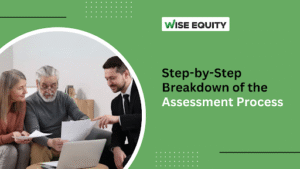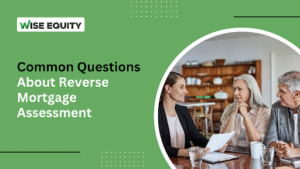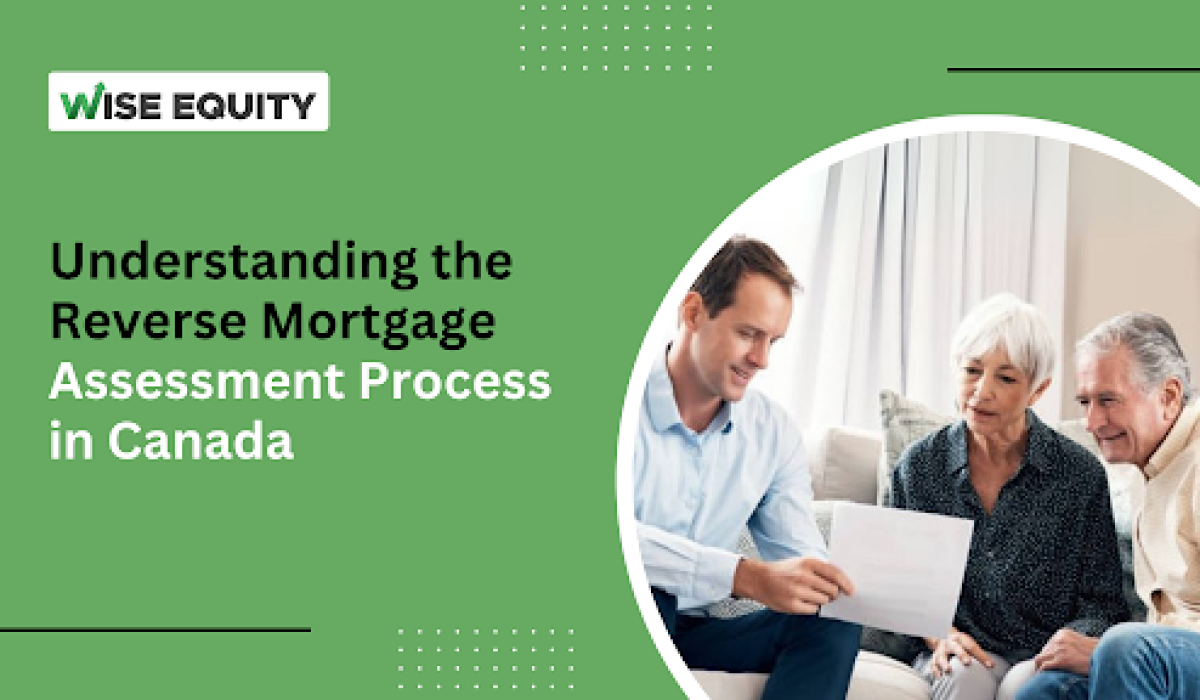In Canada, reverse mortgages have become a popular option for seniors looking to access the equity in their homes while continuing to live in them. However, before one can benefit from this financial product, a thorough reverse mortgage assessment must be completed. This assessment helps determine eligibility, financial suitability, and the potential impact on a homeowner’s future. In this blog, we will explore the reverse mortgage assessment process in detail and how it benefits Canadian homeowners.
What Is a Reverse Mortgage?
A reverse mortgage allows homeowners aged 55 or older to borrow against the value of their home without the need to sell it. Unlike traditional loans, there are no monthly repayments. Instead, the loan is repaid when the homeowner sells the property, moves out, or passes away. Although appealing, this product requires careful consideration, and that’s where the reverse mortgage assessment plays a crucial role.
Why the Assessment Matters
To begin with, the reverse mortgage assessment is not just a formality. It is a critical step that ensures the homeowner fully understands the product, including the long-term implications. Moreover, it helps lenders determine the risk associated with providing the loan. This process protects both the borrower and the lender by promoting transparency and informed decision-making.

Step-by-Step Breakdown of the Assessment Process
1. Initial Consultation
The first step in the reverse mortgage journey involves a consultation with a mortgage advisor. Companies like Wise Equity offer free consultations to help homeowners understand their options. During this stage, the advisor gathers basic information such as:
- Age of the homeowner(s)
- Estimated home value
- Existing mortgage balance (if any)
- Financial goals and future plans
This step is crucial as it lays the foundation for the rest of the assessment.
2. Eligibility Review
Following the initial discussion, the lender will verify that the applicant meets the basic criteria for a reverse mortgage in Canada. These include:
- Minimum age of 55
- Canadian residency
- Home must be the primary residence
- Sufficient equity in the property
If you meet these qualifications, you move on to the next phase of the reverse mortgage assessment.
3. Property Appraisal
A certified appraiser will visit your home to determine its current market value. The appraisal ensures that the loan amount is accurately calculated based on the property’s value. Lenders typically offer up to 55% of the home’s appraised value, depending on your age and location.
Wise Equity partners with experienced appraisers to ensure a smooth and efficient process for its clients.
4. Legal and Financial Review
At this stage, you are required to seek independent legal advice. This step is mandatory in Canada to ensure the homeowner fully understands the terms of the agreement. Additionally, a financial review may also be conducted to assess how the reverse mortgage fits within your broader financial plan.
Legal professionals help you understand:
- Loan terms and conditions
- Repayment scenarios
- Potential impact on inheritance and estate
This phase of the reverse mortgage assessment is essential for long-term planning and protection.
5. Final Approval and Funds Release
Once the appraisal and legal review are complete, the lender finalizes the approval. The loan amount is then released either as a lump sum, regular payments, or a combination of both—depending on your preference.
Wise Equity ensures that clients receive timely updates and guidance throughout this stage, making the transition to receiving funds stress-free.

Common Questions About Reverse Mortgage Assessment
How Long Does the Assessment Take?
Typically, the entire reverse mortgage assessment process takes 2 to 4 weeks, depending on how quickly the required documents and consultations are completed.
Does My Credit Score Matter?
Interestingly, a reverse mortgage does not rely heavily on your credit score. Since there are no monthly payments, the focus is more on your home equity and age than on traditional credit factors.
Will It Affect My Government Benefits?
Reverse mortgage proceeds are not considered taxable income and generally do not affect Old Age Security (OAS) or Guaranteed Income Supplement (GIS) benefits. However, consulting a financial advisor is recommended for clarity.
Benefits of a Thorough Assessment
The reverse mortgage assessment provides clarity and ensures you’re making the right choice. While the product isn’t ideal for everyone, it can be incredibly useful for retirees who want to supplement their income, cover healthcare costs, or finance home renovations without selling their property.
Wise Equity emphasizes the importance of transparency and education throughout this process. Their team ensures that clients not only qualify for a reverse mortgage but also fully understand how it aligns with their goals.
Final Thoughts
Understanding the reverse mortgage assessment process is vital for any Canadian senior considering this type of loan. It’s not just about qualifying — it’s about making sure the decision supports your financial security and future plans. Through consultations, property evaluations, legal reviews, and financial planning, the assessment process provides a 360-degree view of how a reverse mortgage would impact your life.
If you’re considering this route, Wise Equity is here to help. With a dedicated team of experts and a client-first approach, they guide you through every step, ensuring you feel confident in your decision.

